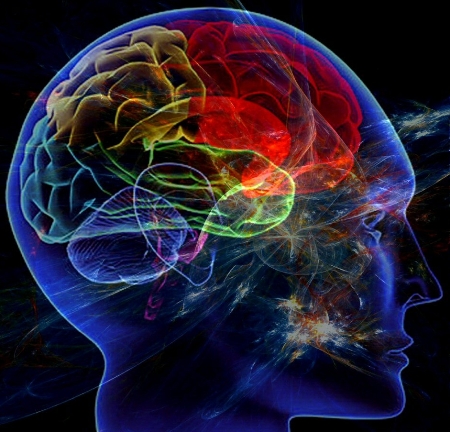
As a common set of common neurological disorders characterized by seizures, epilepsy affects around 50 million people worldwide. Mostly found in old people and infants, the disease has many myths attached to it, most of which are untrue. Some of them are listed here.
You should always treat seizures as medical emergencies and dial 911
To be really honest, seizures cannot always be classified as medical emergencies and hence, the patient may not necessarily require an ambulance. Yes, you can consider calling 911 only if the condition lasts longer than usual or takes place repetitively without the affected person regaining his senses in between. In case the person gets injured during the attack or the situation concerns a diabetic person or a pregnant woman, you must seek professional help. A good number of people affected by epilepsy agree that it is a big problem. The professional agencies are flooded with phone calls where patients complain that they had a seizure in office, a situation that triggered wide spread tension among colleagues or differential treatment by the boss. This myth is only partially true.
Epilepsy harms intelligence
In reality, epilepsy patients are no less intelligent than the average human beings. Learning becomes more challenging if seizures occur frequently or when the medication produces profound side effects. However, it would be wrong to presume that epilepsy causes lower intelligence. Although, it is true that there are many victims who have demonstrated mental illness, still to think that epilepsy is the sole reason behind this is nothing but a mere myth. Many people with epilepsy have normal or above average intelligence. As a matter of fact, even the most talented people in history were known to be epileptics. Examples include Sir Isaac Newton, Agatha Christie, Ludwig Van Beethoven, Vincent Van Gough and Napoleon Bonaparte. These sort of myths make people single out an otherwise normal person, causing him/her to feel like an outcast. It goes without saying that the medical fraternity is against this story.
Epilepsy may turn severe resulting in frequent seizures
Although there is no denying the fact that some people encounter the seizures more often than not, for others the condition remains stable, probably occurring once a year. You can even find patients who have practiced seizure management brilliantly and have not experienced a single attack in almost a decade. Medication provides excellent control to a wide number of sufferers. However, according to medical experts, some people have not benefited from the treatment, only to be swallowed by epilepsy further. In fact, the implications vary from one person to the other.
Epilepsy patients can’t lead a normal life, work like everybody else, or attend to regular chores
It has to be understood that epilepsy patients are quite capable of leading a normal life. They can perform well on both personal and professional fronts, excelling in college or having a family. It is a manageable medical condition and hence, people suffering from epilepsy are perfectly okay. This myth emerges from the fact that epilepsy can lead to the deterioration of the mental condition of an affected person causing him to fall prey to despair. The experts have time and again opposed the above belief vehemently.
There is only one variety of seizure, the convulsion
You would be surprised to know that seizures have 40 different forms and therefore, convulsion is not the only one around. Seizures occur as blank stares, altered consciousness, involuntary movement, sensation changes and of course, convulsion. Moreover, seizures may result from a variety of factors and researchers are yet to discover all of them. Taking a person getting convulsions to be an epileptic patient may prove detrimental in the long run. It will cause unnecessary tension and confusion. The myth emerges from the lack of knowledge among people in the past. Obviously, now, with advancements in medical knowledge and diagnostic techniques neither medical experts nor common people in general are ready to buy that story.
People swallow their tongues during seizures
No human being can ever swallow his/her tongue. Hence, this is probably one of the funniest and most impractical myths surrounding epilepsy. When the seizures occur, people demonstrate different kinds of symptoms. Due to the sensitive nature of the disease, such symptoms may look disturbing at times. However, it would be wrong to presume that a patient can do something as near impossible as swallowing his/her tongue. The myth has its roots in the belief that epilepsy was a form of spiritual possession. The medical experts have not only refuted such claims but are also taking measures to keep people from believing them.
Epilepsy occurs when a human body gets spiritually possessed
Many people nowadays simply refuse to believe the age old story which recognizes epilepsy as a kind of spiritual possession. The truth is that epilepsy is nothing but a brain disorder where a group of neurons start functioning abnormally. Epilepsy is primarily marked by seizures that feature recurrent jerking of muscles, sometimes referred to as convulsions. There are many patients whose families still fall back on exorcism to treat this medical condition. Such measures can only prove damaging to the health of the affected person. The medical community is becoming active against such misleading rumors. Hence, the connection with demonic possessions is fictional with no basis in fact. Medical organizations are going out of their way to educate the masses about the medical intricacies of epilepsy, reminding them time and again that it’s a brain condition where patients undergo recurrent seizures.
Epilepsy is highly contagious
It is, of course, not contagious and people do not catch the disease by coming into contact with patients experiencing the seizures. It is probably as non-contagious as blood pressure or diabetes. Anything that disturbs the normal pattern of activity in the brain can trigger epilepsy. It is a form of brain disorder often triggered by serious head injuries. The prime causes of epilepsy include brain chemistry, hereditary causes, head injury, prenatal injuries and environmental causes. Hence it’s not a contagious disease. This myth emerged as a result of several rumors fueled by literary geniuses (sarcasm intended). By believing in such myths, you can only isolate a person suffering from a serious disease further. The medical community is, of course, completely refutes the contagious nature attached to epilepsy.
People born with epilepsy get it through genetic disorders
Epilepsy has nothing to do with genes. A person can develop the problem at any point of time. While some people may be born with epilepsy, others start showing symptoms much later as adults. Apart from genetics, the other epilepsy generating factors include brain tumor, head trauma, stroke or lesion. According to a research study, in about sixty to seventy percent of the cases, causes of epilepsy continue to remain under the wraps. Therefore, it is a problem in the human brain that has little to do with genes. It has been observed that epileptic patients often face problems while trying to get married owing to this wrong belief among people. A majority of the population believes that since epilepsy is a genetic disorder, a person suffering from the disease will pass on the problem to his/her offspring as well. The medical community has in recent times come out with several theories to eradicate such myths.



